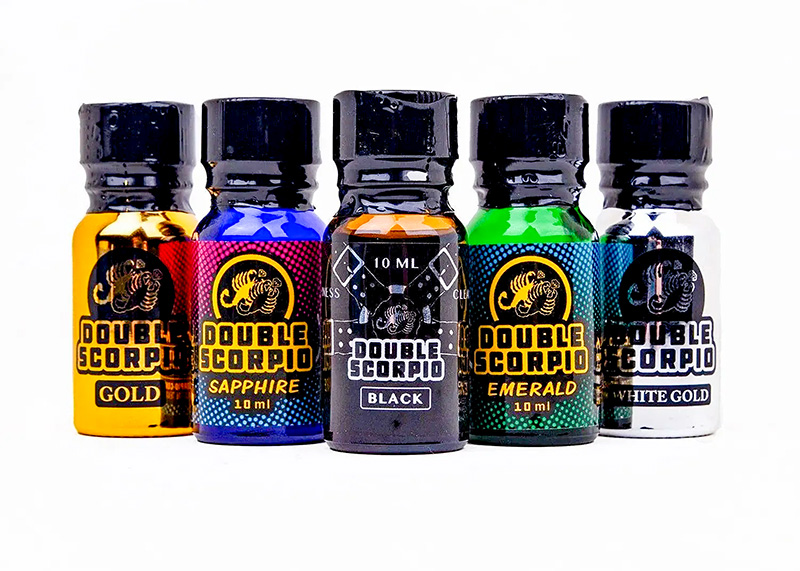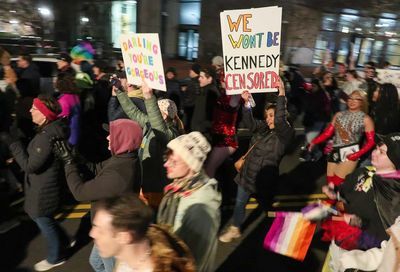Pennsylvania Lawmakers Remove Homosexuality from Criminal Code
Bill ensures that same-sex relations will not be criminalized, even if the Supreme Court revives state-level anti-sodomy laws.

The Pennsylvania state legislature recently passed a measure that will finally remove “homosexuality” from the list of banned sexual acts in the state’s crime code. The Pennsylvania state house first passed the bill by unanimous vote on June 8, with the Senate passing the bill unanimously nearly a month later, on July 7.
The bill now heads to Gov. Tom Wolf for his signature into law. With Wolf’s signature, Pennsylvania laws prohibiting certain sexual acts will no longer single out homosexuality or the LGBTQ community.
The references to homosexuality in the commonwealth’s laws were the remnants of the state’s anti-sodomy law, which was repealed for married couples in 1975, and for same-sex couples in 1995. Prior to 1960, every state in the union had laws criminalizing same-sex conduct. But slowly, states began to repeal their laws criminalizing same-sex conduct — culminating in a 2003 Supreme Court decision known as Lawrence v. Texas, which found all state anti-sodomy laws targeting same-sex behavior to be unconstitutional.
Despite that decision, 14 states still have anti-sodomy laws on the books, and local authorities occasionally try to enforce them, as in the case of a raid on a Maryland adult bookstore last year, or several incidents during the 2010s, in which sheriff’s deputies in a Louisiana parish were continuing to arrest men under the now-defunct law.
Even states that have officially overturned their anti-sodomy laws may still have laws — sometimes dating back centuries — that reference homosexuality as a depraved practice, “obscene” activity, or equate it with prostitution or bestiality. These laws have persisted despite the legalization of same-sex marriage and shifting societal attitudes regarding the acceptance of homosexuality or LGBTQ individuals — either because lawmakers either refuse to pass pro-LGBTQ legislation, or because subsequent references to homosexuality in the criminal code have gone overlooked.
In the case of Pennsylvania, despite the repeal of the sodomy law, homosexuality was still included under the state’s definition of “prostitution,” and in another section of criminal law referencing “obscene and other sexual materials and performances.”
While Pennsylvania’s actions are a step forward for the LGBTQ community, many advocates have begun sounding the alarm that law enforcement officials in other states that have failed to fully repeal their anti-sodomy laws through the legislative process may be emboldened to enforce the laws.
Already, Texas Attorney General Ken Paxton has indicated that if the U.S. Supreme Court overturns its decision in Lawrence, he will enforce the state’s law criminalizing same-sex relations — meaning those found guilty of violating the law would be forced to pay a fine of up to $500 per incident, could face larger fines or up to 180 days in county jail if the charges are “enhanced” or if there are repeated and consistent violations, and LGBTQ individuals could potentially even be forced to register as sex offenders.
Bolstering that view is a concurring opinion recently issued by Supreme Court Justice Clarence Thomas for a case overturning federal protections for abortion rights. In his opinion, Thomas suggested that the high court “revisit” other decisions, including Lawrence, that deal with rights or protections not explicitly mentioned in the Constitution. Such a reversal of Lawrence would empower any state whose anti-sodomy laws were nullified by the 2003 decision, including Texas, to revive those restrictions.
Further, if one were to adopt Thomas’s views on the limited role of the judiciary and deference to the legislative branch when it comes to writing laws, it would not be surprising to see revivals of anti-sodomy laws, even in places like Massachusetts, where local judges declared local same-sex criminalization statutes unlawful but the state legislature has failed to repeal them.
In a press release, State Rep. Malcolm Kenyatta (D-Philadelphia), one of only three LGBTQ members of the Pennsylvania General Assembly, celebrated the bill’s passage, noting that the change to the state’s code “was about a couple centuries overdue, but a big deal nevertheless.”
“It is my hope that this will be another step towards destigmatizing LGBTQ+ individuals and protecting the community from possible future court decisions,” Kenyatta said in a statement. “When Justice Thomas concurred in the decision to overturn Roe v. Wade, he mentioned Lawrence v. Texas, which ruled that sodomy laws are unconstitutional, as a decision the court should overturn. Should the court do that and had this language remained in the Crimes Code, it would have presented a grave threat to LGBTQ Pennsylvanians.
“Today we remove that cloud of shame and fear to create a Pennsylvania that is fair for all,” he concluded.
Despite the unanimous vote to remove homosexuality from the criminal code, many Pennsylvania lawmakers — especially the bulk of Republicans in the General Assembly — are still hostile towards any expansion of LGBTQ rights.
Pennsylvania currently lacks an LGBTQ-inclusive nondiscrimination law, and bills to pass one have been stifled in committee by Republicans. Same-sex marriages in the commonwealth were only legalized by dint of the Supreme Court’s decision in Obergefell v. Hodges — which Thomas also suggested should be overturned — meaning same-sex couples have no guarantee that their marriages will be protected or recognized if the conservative majority follows Thomas’s lead. And lawmakers recently passed a bill seeking to bar transgender students from participating on sports teams matching their gender identity, which was vetoed by Democratic Gov. Tom Wolf.
LGBTQ advocates panned the proposed transgender sports ban, the most recent anti-LGBTQ action taken by conservative lawmakers in the commonwealth.
“This bill is part of a hate-filled and coordinated campaign to stoke the culture war, divide Pennsylvanians, and distract from the real issues facing the commonwealth and our nation,” Reggie Shuford, executive director of the ACLU of Pennsylvania, said in a statement after the bill was approved on a largely party-line vote.
“The state legislature could be working to protect democracy and voting rights or addressing the myriad problems in the criminal legal system, among so many other issues,” Shuford added. “Instead, some legislators are attacking children to score political points. It needs to stop.”
Editor’s note: Senior editor John Riley contributed to this report.
Support Metro Weekly’s Journalism
These are challenging times for news organizations. And yet it’s crucial we stay active and provide vital resources and information to both our local readers and the world. So won’t you please take a moment and consider supporting Metro Weekly with a membership? For as little as $5 a month, you can help ensure Metro Weekly magazine and MetroWeekly.com remain free, viable resources as we provide the best, most diverse, culturally-resonant LGBTQ coverage in both the D.C. region and around the world. Memberships come with exclusive perks and discounts, your own personal digital delivery of each week’s magazine (and an archive), access to our Member's Lounge when it launches this fall, and exclusive members-only items like Metro Weekly Membership Mugs and Tote Bags! Check out all our membership levels here and please join us today!



























You must be logged in to post a comment.